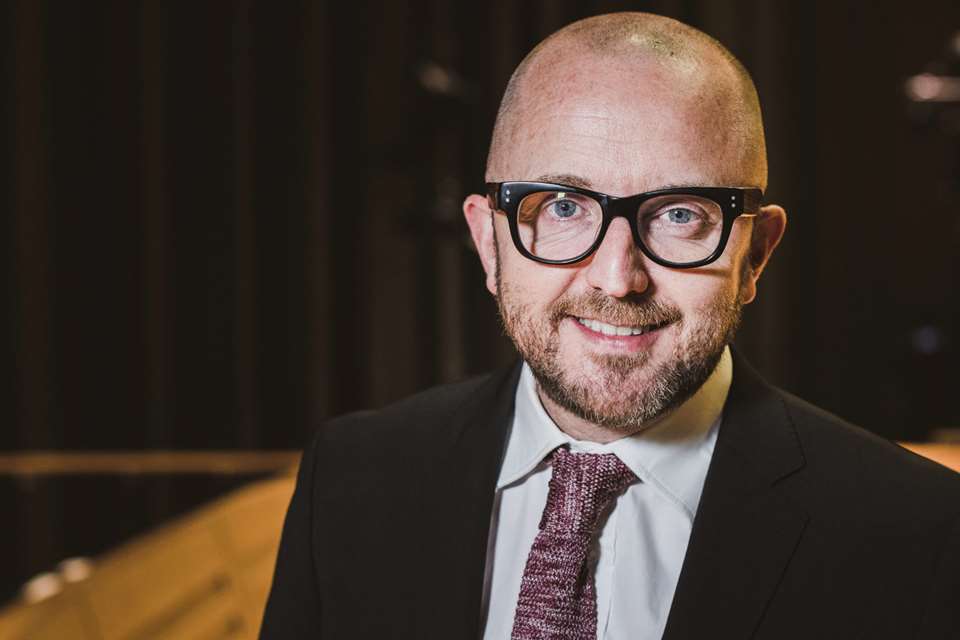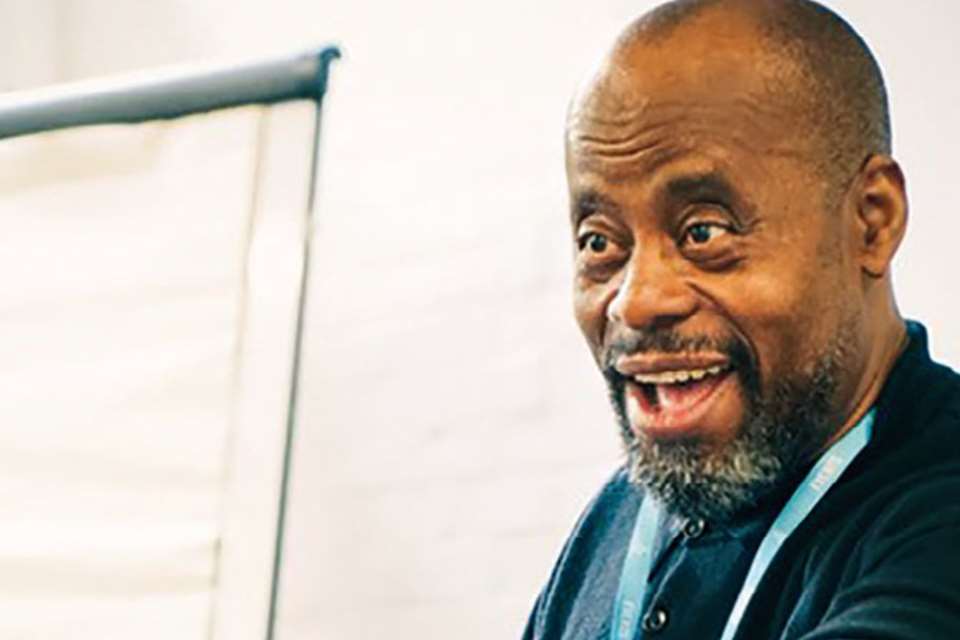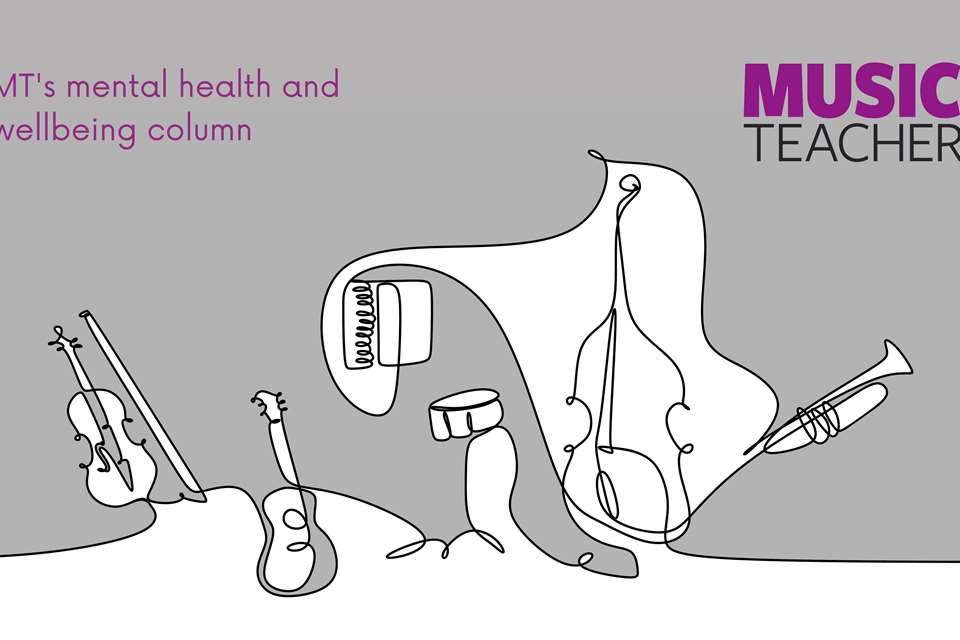Mental health and young musicians: Breaking the silence
Hattie Fisk
Sunday, January 1, 2023
Armed with a microphone in one hand and a bow in the other, cellist Hattie Butterworth and her podcast co-host are growing a new community by discussing mental health issues with fellow young musicians, as Hattie Fisk investigates.

Courtesy Thigns Musicians Don't Talk About
On Instagram, I am looking at an image of a bright gold sticker with the words ‘IMPERFECT MUSICIAN’ stamped out in bubble writing. The image caption reads: ‘We believe the music industry has a perfection problem… We want us to take pride in our imperfections and to stop perpetuating this idea of the untouchable perfect musician.’ This is a post from Things Musicians Don’t Talk About – a podcast run by young musicians, talking to fellow musicians about mental health and the pressures of the music industry. After such a brilliant introduction, and coveting this glittery sticker, I gave the podcast a listen – and ended up delving deeper.
Talking about the things musicians don’t talk about
While the joys of being a working musician are ten-fold, loneliness and mental health issues are common struggles for young musicians starting out. One such musician is Hattie Butterworth – a female cellist who started sharing her experiences in blog posts online. After each post, she tells me, there was a barrage of comments and private messages in her inbox from fellow young musicians feeling similar stresses; some messages were from strangers who wanted to share their stories. Searching for something to bring together a community of young musicians struggling with their mental health throughout the pandemic and beyond, Butterworth picked up a microphone and decided that she would make a podcast, which became Things Musicians Don’t Talk About (TMDTA).
The show has moved from strength to strength, covering serious issues with a comforting relatability that comes from sharing genuine personal accounts. Each episode features guests from the world of classical music, including most recently BBC Radio 3 presenter and flautist, Hannah French. ‘It started from my own mental health,’ says Butterworth, ‘but I also wanted it to touch on industry issues, and to show other young people that they are not alone in their experiences.’
As one of the only podcasts in this space, it has become the go-to for discussing issues often ignored elsewhere, surpassing 10,000 downloads in April 2022. One reviewer described the show as ‘a window into parts of musicians' lives that few of us are aware of.’ I would highly recommend TMDTA to those old and young, as the topics covered are universal. After listening to a couple of episodes I am completely hooked; this has quickly become a favourite on my commute, as it balances the tightrope of being light-hearted and still truly meaningful. And the first time I listened to the ‘Mental Health Walk’ tangent of the show, the advice from Butterworth really resonated with me. The hosts touch on discrimination – a hot topic in the music industry, with accusations of sexism and racism being all too regular across education institutions – but also mental health issues such as addiction, eating disorders, depression and anxiety to name a few.
 © ADOBE STOCK / MARTIN BARRAUD KOTO
© ADOBE STOCK / MARTIN BARRAUD KOTO
Sailing past its 50th episode, the podcast now features co-host Rebecca Toal and editor Katy Ehrlich. Just as Butterworth has made connections with readers online, Toal and Butterworth met on Instagram after bonding over sharing their mental health journeys with others. This collaboration is just one example of how positive and impactful an online community such as this can be.
Sharing stories
Butterworth has faced her own mental health battles, which might be what makes her such a good co-host on the podcast. Practising what she preaches, the cellist paused the show for six months when she felt the need to look after her own mental health – something that should be a priority for all young musicians.
The high-pressure environment of conservatoire training can be extremely demanding, and this can cultivate an atmosphere of pressure and stress if young people are not aware of how to take care of themselves and put boundaries in place. ‘As a young musician, being alone, hardworking and talented is glorified. It is really scary, because then if you start struggling and can’t keep up with all the things you have been told are the way to success, then you feel like a failure,’ says Butterworth. ‘We need to teach young people that even if you want a sustainable career in music, you are allowed to go out with your friends at the weekends. We should be allowed days off.’
Often, music students can be the ‘musical’ ones from their secondary school and moving into higher education can mean that they suddenly feel like a very small fish in a very big pond. Many students find this adjustment daunting and believe themselves quite isolated in feeling this way.
‘There is always this dialogue about romanticising the “sacrifices” we make for our art, but what we are showing to young kids is that if you are not practising and pushing yourself until you are burnt out, then you are not a worthy artist,’ says Butterworth. ‘That narrative is spun so often in the world of music, that I think it is important to show that it doesn’t need to be this way, and we can take care of ourselves without feeling like a failure.’ It is extremely important to learn lessons like this from teachers, but peer-to-peer collaboration is invaluable and can have a completely different impact on a young person's perspective – hence why the TMDTA podcast has hit such a sweet spot.
When sharing becomes oversharing
Despite the success of the podcast so far, Butterworth admits that one of the biggest struggles when it comes to creating content is the barrier between telling her story and oversharing. ‘For some people, sharing this type of information online is amazing and they feel a huge connection to the podcast because of that. But for other people, it can be triggering.’
Topics such as eating disorders and self-harm are difficult and nuanced, and it can be hard to know how to discuss them effectively. What can be useful for one individual could be difficult to hear for another, but the podcast does a brilliant job at signposting platforms that can help, and labelling trigger warnings long before the topic is unpacked.
Interestingly, the responses to the podcast tend to fall into two categories: firstly, young people who may have had to quit because their mental health was compromised by the profession or felt like they needed a break; secondly slightly older listeners who are commenting on how important it is to discuss mental health and how damaging it was for their generation not to have that in place. Butterworth tells me that although encouraging, this can be taxing for the co-hosts, as many of the messages they receive are people wish to get something off their chest or tell their story.
Safe spaces
Music lessons may become safe spaces for students, as you may well experience in your own practice. On occasion, it can be hard to know how to support a student with their own mental health difficulties. Of course, this is a nuanced issue that varies from situation to situation, but communities such as the one created by this podcast can help young people feel that they are not alone.
Butterworth and her team are doing a brave and brilliant thing by presenting their vulnerable selves to others in the world of music, and it is only through work like this that taboo conversations around common experiences can be normalised. The next time you are on a train journey, press play on an episode and see what you think – I promise you that by the end you will gain a further understanding of your students, and possibly yourself.










